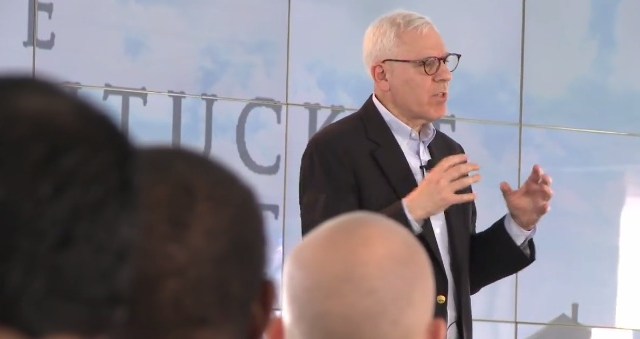Only Passion Can Transform Stress Into Success

One interesting outcome of the research that we’ve been doing at the Center for the Edge is what’s required to address mounting performance pressure. And we ended up casting a pretty broad net looking at a wide variety of arenas, not necessarily business arenas, where you see extreme pressure. And one of those areas is extreme sports. Big wave surfing was an area that we spent quite a bit of time in.
Online video gaming, these war games like World of Warcraft where you’re constantly faced with these new challenges, new threats – how do you cope with it and how do you address it and drive performance to the next level? What was interesting despite the diversity of all these different arenas where we looked for sustained extreme performance improvement, the one common element in all those environments was the deep passion of the participants.
And it’s interesting that if you look at this in a traditional business context passion is actually very suspect in the business world. Executives will talk about the importance of passion but what they really mean is finding somebody who will work nights and weekends on their assigned task but predictably and reliably follow orders and just work harder.
Passion and true passion is actually very unpredictable. It heads in unexpected directions because it’s constantly seeking out new challenges. But what’s really interesting is that passion ultimately is necessary for sustained extreme performance improvement. And so the challenge increasingly for business is how to reintegrate passion and profession.
Rather than having this view which I think many of us took into the workforce was passion is fine but it’s something you pursue after hours. If you have a hobby or some interest or family, fine, be passionate about that but when you’re in your workplace focus on the job at hand and do it predictably and reliably.
The challenge is again bringing these two together in ways that challenge the most basic assumptions about how business is done today. And I think the winners in this big shift I’ve talked about is this opportunity to create environments that not only encourage but almost require people to become passionate about their work. And really if they can’t be passionate about the work they’re currently doing, find another way to earn a living to pursue the passion.
At an individual level just as much as a corporate level this notion of if you’re not really passionate about the work you’re doing in a world of mounting pressure you’re going to experience more and more stress. You’re going to burn out. You’re going to become marginalized. And the only way to stay ahead is to be passionate about the work and take those challenges that for other non-passionate people is a form of stress and convert it into excitement.
To say, “Wow, that’s a really great opportunity to challenge myself to get to that next level of performance. How would I do that? Who can I connect with to bring to this challenge?” That’s taking stress and moving it into excitement and success.
In Their Own Words is recorded in Big Think’s studio.
Image courtesy of Shutterstock





